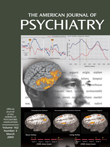This volume presents a comprehensive approach to long-term psychotherapy, dealing with both its theoretical underpinnings and its application in clinical practice. The text is liberally sprinkled with illustrative case vignettes and clinical pearls. Dr. Gabbard, an internationally recognized leader in psychodynamic psychiatry, has accomplished a masterful feat in condensing and integrating key elements of the voluminous literature on the topic. Additionally, he has incorporated insights gained from his own extensive clinical experience and teaching at clinical case conferences for psychiatric residents and other trainees.
Prompted by the Psychiatry Residency Review Committee mandate that residents must be trained to competence in five different psychotherapies, American Psychiatric Publishing is producing a series comprising separate volumes for each therapy under the general editorship of Dr. Gabbard, with this volume on long-term psychotherapy authored by him as well.
Chapter topics include key concepts, assessment, getting started, therapeutic interventions, goals, resistance, dreams, countertransference, termination, the use of supervision, and, finally, evaluating core competence. The author recommends reading his text
Psychodynamic Psychiatry in Clinical Practice (1) for more detailed discussion of the major theoretical models in psychodynamic psychiatry and approaches to specific disorders.
We agree that a beginning therapist may find it difficult to understand, integrate, and apply the theoretical models of ego psychology, object relations, attachment theory, and self psychology covered in this basic primer and will need further elaboration of the material. One key topic in this basic primer that would have benefited from greater detail is the initial evaluation, because many of today’s residents are trained primarily to conduct DSM-type interviews aimed at elucidating descriptive symptoms and diagnosis; they are not taught how to conduct a psychodynamically oriented initial interview leading to an in-depth understanding of the patient as a person.
The book is humanistic in approach, rejecting the old psychoanalytic model of abstinence for the therapist. Gabbard states, “When in doubt, be human.” He believes that the essence of therapy is the transaction between two collaborating human beings with the goal of helping the patient, and he recognizes that there is “no right treatment approach.” Different theoretical models and treatment strategies should be applied flexibly over the course of treatment.
The content of each chapter is uniformly excellent and clearly presented. However, some seasoned psychotherapists may have occasional quibbles with treatment approaches employed in the clinical case vignettes. The chapter on the use of supervision is original and innovative, containing many valuable suggestions for both supervisor and supervisee. For example, the admonition to trainees that “the thing the trainee most wishes to avoid sharing with the supervisor may be the most important issue to share with the supervisor.” The last chapter, on evaluating competencies, is helpful in framing criteria for evaluation of a therapist’s knowledge. However, as Gabbard points out, “A beginning therapist needs much more than a textbook. There is no substitute for sitting with patients over time and applying what one has learned.”
The recently published report on methodology for assessing psychotherapy competence by the Columbia group
(2) shows promise in this regard. To achieve competence, it will be up to residency training programs to provide residents with the allotted time to conduct therapy, appropriate patients, competent supervisors, and didactic seminars. The very essence of psychiatry, the biopsychosocial model, which incorporates psychodynamic psychotherapy, must be preserved to ensure that psychiatrists are experts in human behavior. We believe that this book will be extremely valuable not only for psychiatric residents and trainees in other disciplines but for all psychotherapists. We recommend the book highly for use as core reading in residency programs and only wish that such a book had been available when we were in training.

